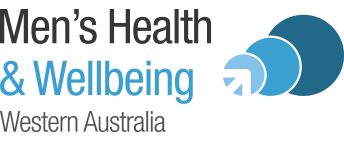State of Men’s Health 2016
Western Australian men are significant and positive contributors to Western Australian life through their diverse family, work and community roles. To empower men to continue this positive involvement, allow our young men to reach their potential and to support all men to enjoy a long and high quality life, supporting the health and wellbeing of men is an important and critical whole community issue.
However, whilst acknowledging one of the highest life expectancies in the world and an overall increase in life expectancy and quality of life for all Australians over the past five decades, rates of mortality for men continue to be higher than women and have failed to improve to the same extent as women.
As we know, the Australian Government launched the National Male Health Policy in May of 2010, thus providing a national framework for improvement in the health of Australia’s males. The policy aims to build on the strengths of being a male, with specific focus areas of:
- optimal health outcomes,
- equity and ease of access to support and services,
- development of a solid evidence-base of research data and
- provision of preventative initiatives for male health and wellbeing.
The policy responds to consistent research that shows a gender differential in illness and mortality. These differences are illustrated by different rates of injury, illness and mortality as well as different attitudes towards health and risks, and the way each group uses (or does not use) health services.
The State of Men’s Health in WA 2016 provides the background, data, and next steps required to promote discussion, further consideration, and action to improve male health and wellbeing in Western Australia. Specifically, the information collated in this document emphasises the gap in the health and wellbeing of Western Australian males, particularly high-risk male population sub-groups.
Download the full report here: State of Men’s Health 2016
NEWS CATEGORIES
GET INVOLVED
State of Men’s Health 2016
Western Australian men are significant and positive contributors to Western Australian life through their diverse family, work and community roles. To empower men to continue this positive involvement, allow our young men to reach their potential and to support all men to enjoy a long and high quality life, supporting the health and wellbeing of men is an important and critical whole community issue.
However, whilst acknowledging one of the highest life expectancies in the world and an overall increase in life expectancy and quality of life for all Australians over the past five decades, rates of mortality for men continue to be higher than women and have failed to improve to the same extent as women.
As we know, the Australian Government launched the National Male Health Policy in May of 2010, thus providing a national framework for improvement in the health of Australia’s males. The policy aims to build on the strengths of being a male, with specific focus areas of:
- optimal health outcomes,
- equity and ease of access to support and services,
- development of a solid evidence-base of research data and
- provision of preventative initiatives for male health and wellbeing.
The policy responds to consistent research that shows a gender differential in illness and mortality. These differences are illustrated by different rates of injury, illness and mortality as well as different attitudes towards health and risks, and the way each group uses (or does not use) health services.
The State of Men’s Health in WA 2016 provides the background, data, and next steps required to promote discussion, further consideration, and action to improve male health and wellbeing in Western Australia. Specifically, the information collated in this document emphasises the gap in the health and wellbeing of Western Australian males, particularly high-risk male population sub-groups.
Download the full report here: State of Men’s Health 2016
NEWS CATEGORIES
GET INVOLVED
SUBSCRIBE TO OUR QUARTERLY NEWSLETTER
If you are in an emergency, or at risk of harm to yourself or others, please contact emergency services on 000.
PO Box 551, Wembley WA 6913 | Phone: 0499 076 925
PO Box 551, Wembley WA 6913
Phone: 0499 076 925
© Copyright 2021 All Rights Reserved. Men’s Health & Wellbeing WA
© Copyright 2021 All Rights Reserved.
Men’s Health & Wellbeing WA
